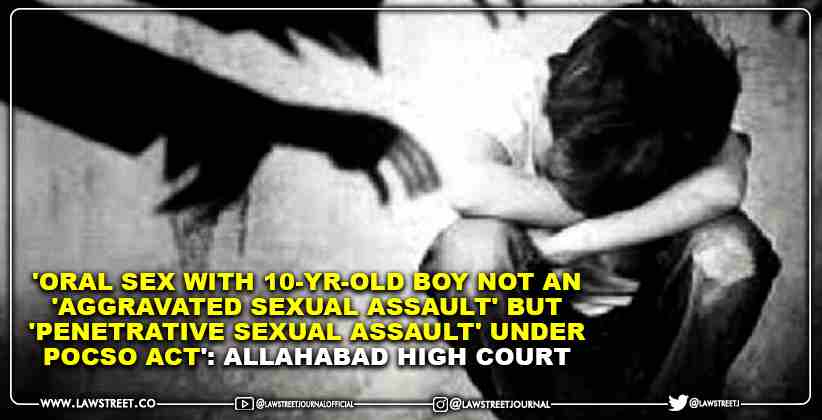The Allahabad HC recently observed that putting the penis into the mouth of a 10-year-old boy does not fall into the case of aggravated sexual assault. It comes into the category of penetrative sexual assault which is punishable under Section 4 of the Protection of Children from Sexual Offences (POCSO) Act, 2012.
The bench of Justice Anil Kumar Ojha observed that the act of falls under category of penetrative sexual assault punishable under Section 4 of the POCSO Act 2012.
Importantly, it may be noted that Section 5 of the POCSO Act, 2012 outlines the scope of 'aggravated penetrative sexual assault', which the court observed, wasnt applicable in the current case.
BACKGROUND
The Court was adjudicating an appeal moved by one Sonu Kushwaha against a judgment of the Special Sessions Court which had convicted him under Section 377 (unnatural offences) and Section 506 (punishment for criminal intimidation) of the Indian Penal Code, and under Section 6 of the POCSO Act, 2012.
It was alleged that the appellant had come into the house of the complainant and had taken his 10-year-old son to a temple at Hardaul, where he gave 20 to the appellant's son and directed him to suck his penis. The complainants nephew, Santosh asked him where he had gotten the money from, after which the victim revealed the entire incident.
Thereafter, a complaint was lodged against the appellant and a Special Sessions Court convicted the appellant under Sections 377 and 506 of the IPC and Section 6 of the POCSO Act, 2021. Aggrieved by the order, the appellant moved the instant appeal before the High Court.
OBSERVATION
The Court, in its order observed that the offence committed by the appellant neither falls under Section 5/6 of the POCSO Act nor under Section 9(M) of the Act because there is penetrative sexual assault in the present case as the appellant has put his penis into the mouth of the victim.
It may be noted that since 'penetrative sexual assault' under Section 4 is a lesser offence than 'aggravated penetrative sexual assault' under Section 6, the Court reduced the sentence of the appellant from 10 years of rigorous imprisonment to 7 years, and further imposed a fine of rupees 5,000.






